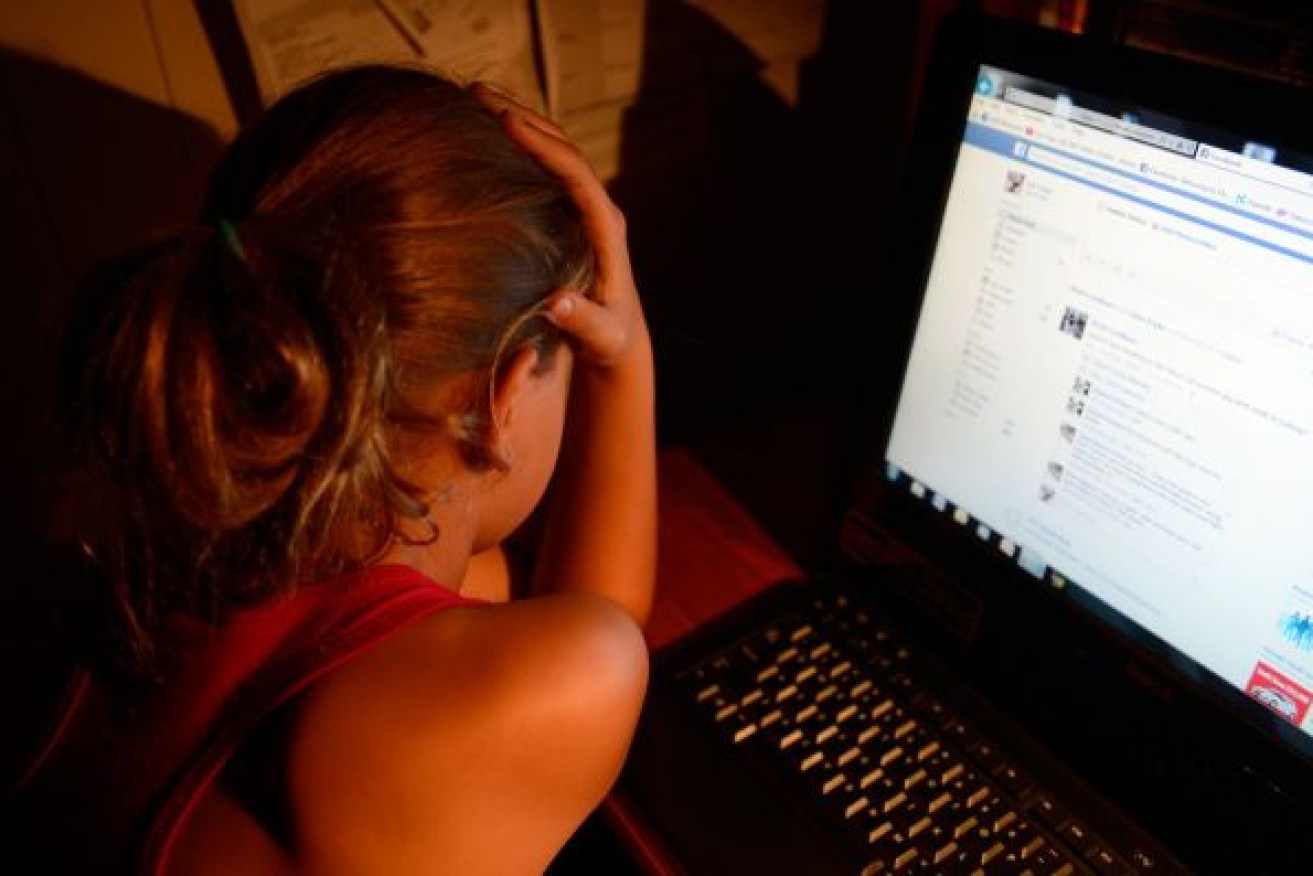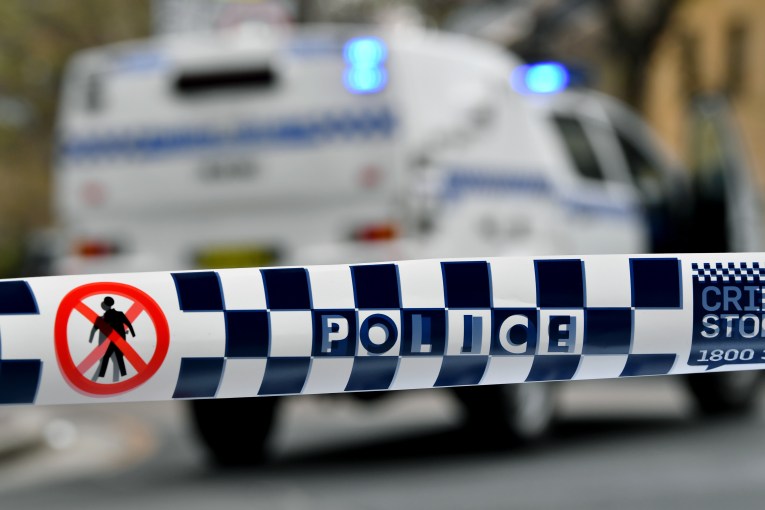Cyber bullies legally forced to apologise to victims under ‘world-first’ safety laws


Cyber bullying will be further criminalised under new government proposals. Photo: AAP
Cyber bullies could face $110,000 fines, and adults bullying children online could be legally obliged to apologise to their victims, under a sweeping online safety act being hailed as a world first.
New powers would also compel social media companies to provide the government with contact and personal information of anonymous accounts involved in online abuse.

New cyber bullying and online safety laws will give the government new powers. Photo: AAP
Tough enforcement of image-based abuse and abhorrent violent content is also on the way, under a new federal government proposal, with plans to force social media companies and internet providers to pull down such material within 24 hours.
“The internet has brought great social, educational and economic benefits. But just as a small proportion of human interactions go wrong offline, so too are there risks online,” Communications Minister Paul Fletcher said.
‘World-first’ adult cyber bullying laws
Central to the Online Safety Bill is what Mr Fletcher said is a world-leading scheme to outlaw cyber bullying among adults.
Australia’s eSafety Commissioner already presides over a system that governs cyber bullying among children, but now adults subjected to “seriously harmful content” would have legal recourse to complain, have that material deleted, and see their abusers fined more than $100,000.
Mr Fletcher said the threshold for bullying would be higher for adults than children.
“This recognises that adults have greater resilience than children and appropriately balances the importance of freedom of speech,” he said.

Communications Minister Paul Fletcher. Photo: AAP
For cyber bullying children, the threshold is for content that would likely be seen as “seriously threatening, seriously intimidating, seriously harassing or seriously humiliating”.
For adults, cyber bullying content is that which is considered “menacing, harassing or offensive”.
Under stronger powers, an adult cyber bullying a child would be asked to remove that content, and apologise to their victim.
The eSafety Commissioner would have the power to ask social media companies, internet providers and websites hosting such material to take it down within 24 hours, down from the current 48 hours.
Civil penalties of $110,000 apply if they don’t comply, while multiple breaches in a 12-month period would see them named and shamed by the government.
The government could also ask app stores and search engines to stop featuring the website that continually flouts the bullying laws.
“By establishing proper protections to help keep Australians safe online, we can in turn help Australians to realise the substantial benefits that come from using the internet,” Mr Fletcher said.

New anti-bullying rules will apply to adults and children. Photo: Getty
Crucially, an offence could technically be committed even if the subject of the bullying doesn’t even see it.
The bill states that bullying content against a child is illegal if there is an “effect” on the victim by the content being “accessed by, or delivered to, one or more other persons” – not just if the child “a direct result of the material being accessed by, or delivered to, the Australian child”.
Theoretically, that could mean that private posts between two bullies could be illegal, even if the subject of their discussion never knew what they were talking about.
The Online Safety Bill would also require social media companies to comply with new basic online safety expectations and transparency reporting requirements.
This would include providing the government with more information about their inner workings so that authorities can respond quicker to abuse.
“Services will have to report on how they will uphold these expectations and they can be penalised if they fail to report,” according to government documents.
Image-based abuse crackdown
Restrictions around posting intimate images online will also come under the new bill.
Known colloquially as ‘revenge porn’, image-based abuse or posting an intimate image of someone without their permission could attract civil penalties of $110,000.
This would include posting or even threatening to post images, such as of someone in the bath or toilet.
The offence would also apply to posting an image of someone who normally wears “attire of religious or cultural significance” without that attire.

New rules would govern image-based abuse. Photo: Getty
Other rules will aim to address “abhorrent” content online, such as graphic violence or terrorism.
Mr Fletcher cited the example of the Christchurch terror attack, where an Australian gunman live-streamed on Facebook a shooting rampage through two mosques, as content that should be able to be instantly removed and blocked long term.
The eSafety Commissioner would be able to require an internet service provider or social media company to block access to content that is promoting, inciting or instructing abhorrent violence, while search engines could be ordered to stop listing links to such websites in their results.
The same rules would apply to image-based abuse.
The law would also give the commissioner the power to block domain names, URLs and IP addresses providing access to such material.
The new laws will be introduced to Parliament in early 2021, and industry would have six months to implement them before penalties apply.
Consultation on the bill is open until February 14 at communications.gov.au/online-safety








